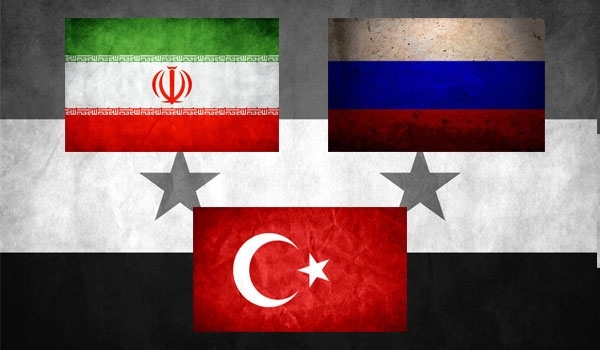
RNA -Guterres is confident that the congress in Sochi will be an important contribution to revive the UN-sponsored peace talks in Geneva. The UN decision to send its envoy to the Syrian National Dialogue Congress in the Russian Black Sea resort of Sochi comes despite the Syrian opposition’s calls for the boycott of the event. Some 1,600 people have been invited to the talks aimed at resolving the years-long crisis in the Arab country.
Last December, Iran, Russia, and Turkey agreed to hold the congress in Sochi on January 29-30. While the Syrian government at the time immediately announced that it would attend the event, some Syrian “opposition” groups rejected the Russian initiative, which is also aimed at agreeing on a post-war constitution in the Arab country.
Damascus correctly says a so-called peace proposal by some countries, including the US and Saudi Arabia, is ‘not even worth the ink.’ The real peace process between Syria’s warring parties in the Kazakh capital Astana has resulted in significant achievements instead, leading to ceasefires and establishment of de-escalation zones across the conflict-ridden country.
The Astana talks have been brokered by Iran, Russia and Turkey, and unlike what Western powers and some Arab states would like to suggest, Sochi is not an attempt to create a separate peace process that would undermine the United Nations’ efforts while laying the groundwork for a solution more suitable to the Syrian government and its allies Russia and Iran. This is the one and the only solution to the years-long crisis in the Arab country. And the reasons are plenty:
- The talks seek no breakup of Syria; it will improve the security situation in the region.
- The goal is not to pave the way for an open-ended US occupation of a part of Syria.
- No opposition group has been banned from attending the event – except for terrorists.
- Iran and Russia have no illicit interests in the Arab country; they are Syria’s allies.
- The agreement on ceasefires and de-escalation zones has worked as a test for commitment.
- The Sochi peace conference is aimed at agreeing on a post-war constitution.
- Having regained the upper hand on the battlefield after nearly seven years of conflict, the Syrian government has offered amnesty to the opposition fighters. It is the foreign-backed opposition that are obstructing the whole process, wanting to see US occupying troops in Syria permanently.
At any rate, Syria and its allies are determined to speed up the current political process. And the absence of some opposition elements will not hinder that meaningful progress. What’s more, all member states of the UN Security Council are attending the Tuesday conference. This includes regional states like Egypt, Jordan, Lebanon, and Iraq, along with Iran and Turkey, the two guarantors of the Astana process (seven rounds of peace talks have been held in Astana to date).
At a time when Turkey has invaded Afrin which is held by the US-backed separatist Kurdish fighters, and Washington is determined to establish a border force to prolong its military presence and occupation, last thing the international civil society wants to see is for Sochi to fail to represent the final chapter of the seven-year old conflict. They also want to see Damascus and allies liberating the remaining Syrian territory from the armed opposition and full sovereignty restored over the entire country.
Regardless of who shows up, Sochi will proceed as planned. The world has seen enough destruction and chaos to afford any delay. One way or another, the political process is well underway and the war on ISIL is finished. Little wonder the US is not obstructing the Sochi process. It is even attending as an observer. This is first because it sees no prospects for turning the status quo in a lost battle; Iran, Russia, the Syrian government and their allies are moving on an irreversible course and are just few months away from a final victory to put an end to years of war; and second the international community is hammering out a political endgame in Syria that is also tailor-made to the UN’s liking – internally and internationally.
847/940